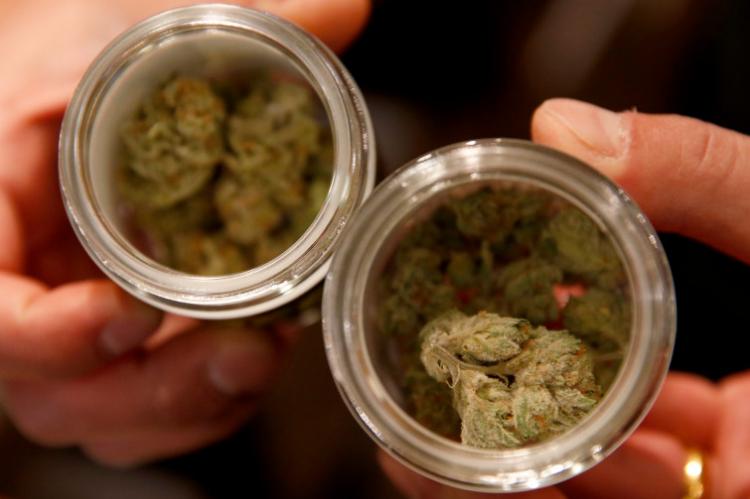California city sues itself, trying to escape controversial cannabis ballot initiative
Pasadena is asking a judge to erase a controversial ballot initiative from next year’s ballot. And it’s doing so by suing its own officials.
Yes, this is highly unusual. No, the city’s isn’t blaming its employees for the proposed measure which, officials have said, would subvert the city’s marijuana laws to legalize currently illegal cannabis stores.
Right now, the ballot initiative — signed by more than 9,100 Pasadenans — is slated to appear on the March ballot, but city officials are asking the courts to strike it and be quick about it. To make changes to the ballot, officials need a decision from the judge by Christmas Eve, legal filings say.
But, to get this case in front of a judge, the city had to sue itself. So that’s what it did.
It’s an administrative maneuver, where most of the City Council is suing City Clerk Mark Jomsky and the County Registrar of Voters because they’re the ones who would be responsible for making changes to the ballot initiative, City Attorney Michele Bagneris said in an email.
It’s their job to ensure the petition had the correct formatting and met the required number signatures, Jomsky said in an email, but: “Only a court can determine whether the proposed initiative is actually lawful and constitutional, and that is what this lawsuit seeks to determine.”
Jomsky and the county office won’t be defending the initiative in court; that responsibility falls to the initiative’s proponents, George Bernales, Susan Gomez and Alan Jay, who were all named in the suit as “real parties in interest,” Bagneris said.
A lawyer representing the group did not respond in time for publication, but a proponent of the initiative, Shaun Szameit, said it was “criminal for the city to thwart the will of the people.”
The initiative was validated by city and county officials in September and immediately put the city in a defensive posture. The same night officials certified the results — effectively guaranteeing it would appear on the March ballot — the City Council started weighing options, possibly including a competing ballot measure and counter-campaigns.
Officials cited the initiative when they were considering changes to the existing cannabis ordinance last month, saying the city’s bungled retail cannabis application process may actually lead voters to choose the new ordinance.
If voters pass it, the proposed ordinance would legalize as many as 18 illegal cannabis retailers, which currently operate in the city without permits, according to a staff report. Additionally, they wouldn’t be subjected to any of the city’s rules for permitted cannabis retailers — the same rules that are so strict, only four of the intended six businesses have legally compliant storefront locations.
Those rules, passed by voters in 2018 as Measure CC, were designed by the city as it rushed to preempt another voter initiative with fewer restrictions than city officials wanted to see. Measure CC contained a provision that barred illegal operators from participating in the city’s recreational cannabis application process.
Since the passage of Measure CC, the city has raided a number of illegal retailers and filed lawsuits against them, including the Golden State Collective, which is owned by Szameit and does not have a city permit.
But Szameit said residents only voted for Measure CC because they were “eager to approve cannabis,” and “they accepted the only option the city was willing to draft.
“Now that signatures have been certified to right the wrong of the city, they are trying to be creative to sabotage and eliminate the inclusion of the local operators,” he said.
Szameit believes only six illegal retailers would benefit from the proposed ballot measure, not 18 as officials say.
Regardless, city officials weren’t thrilled when the initiative reared its head this fall, and they retained an outside law firm to review the ordinance, Mayor Terry Tornek said.
“We’re advised that the ballot measure is flawed, and that it’s not legal,” Tornek said in an interview.
The city retained Los Angeles-based law firm Strumwasser & Woocher LLP to represent them in the proceedings. In the civil complaint filed at the end of October, the city argues the ordinance is unconstitutional, unenforceable and invalid.“We were struck by the fact that these guys were using a ballot initiative to override local control and put them back in business,” Tornek said.
The city has requested a decision by Dec. 24, which is the deadline to make changes to the March ballot.
It’s simply the latest twist in the city’s fraught relationship with cannabis retailers. Its application process for recreational shops has resulted in multiple lawsuits and nearly every decision made by officials have been appealed by the businesses. Officials say they’re only expecting it to continue.
- Log in to post comments

